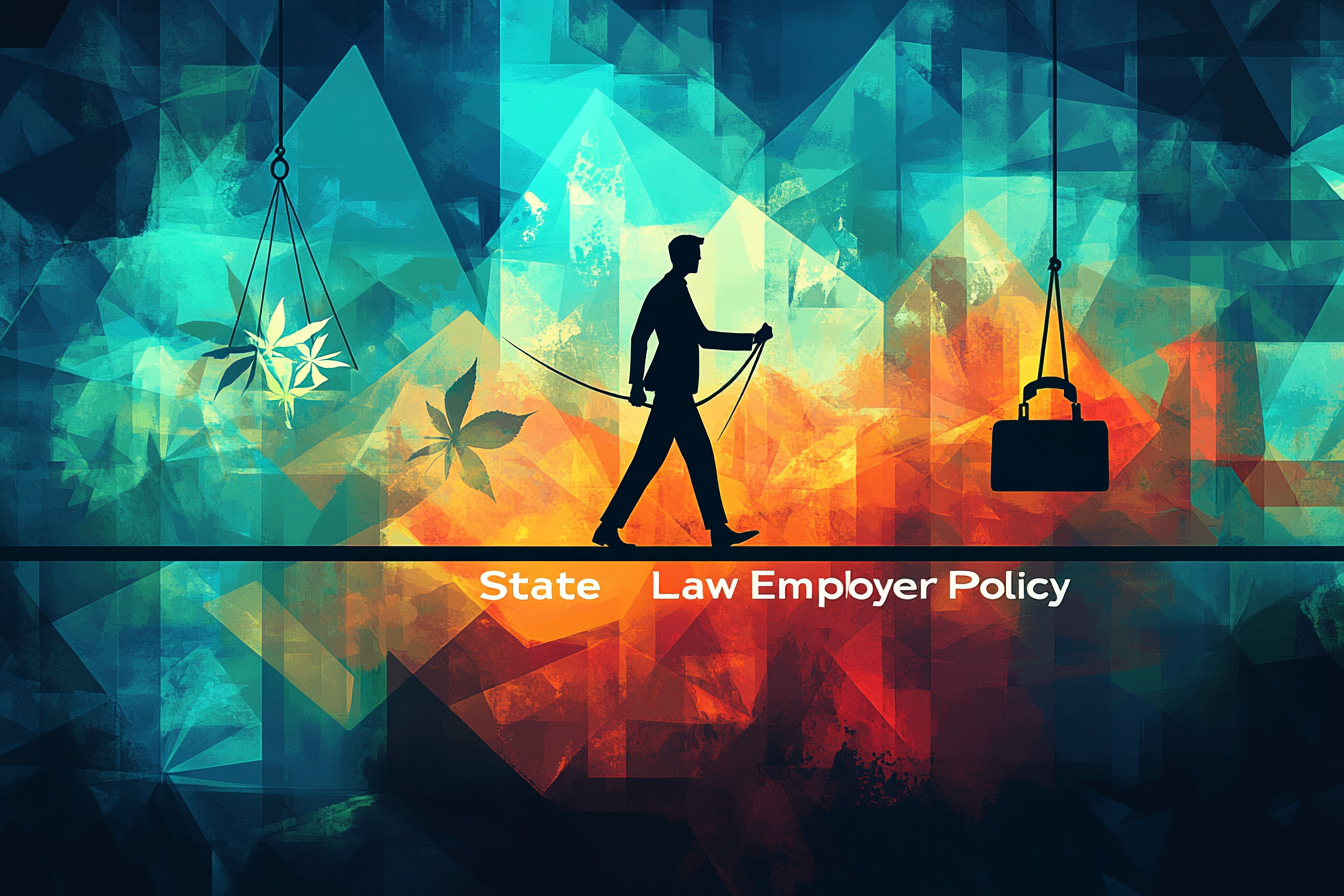Why Employers Still Win When Workers Use Legal Marijuana
As more states legalize marijuana, employees often assume that what’s legal off the clock should be protected on the job.
Author:K. N.Apr 08, 20254K Shares54.1K Views

As more states legalize marijuana, employees often assume that what’s legal off the clock should be protected on the job. But in the courtroom, the law tends to follow a different script. Even in states where cannabis use is fully legal, workplace drug policies often trump personal freedom—especially when safety, liability, or federal contracts enter the picture. For employment attorneys, this ongoing tension between state legalization and employer control has become a battleground where nuance, policy language, and timing all matter.
State Laws Are Expanding, But Protections Aren’t
The surge in marijuana legalization has created a confusing legal map, one where employees in Colorado, California, or Illinois might assume they can’t be disciplined for using a lawful substance. But most state laws stop short of forcing employers to accommodate use, especially if the worker is impaired on the job or fails a drug test. Unlike alcohol, THC metabolites linger long after intoxication ends, and courts have often sided with companies that enforce zero-tolerance policies regardless of impairment.
Several states have started adding worker protections into their cannabis legislation, but even these protections tend to be narrow and riddled with carve-outs. Safety-sensitive jobs, federal contractors, and positions governed by Department of Transportation rules are frequently exempt. What’s left is a patchwork system where the law may say marijuana is legal, but employers still hold the stronger hand when drug tests come back positive.
Refusing Employer Drug Test Requests Can Still Cost You the Job
For employment lawyers, advising clients on whether or not to take a test—or what happens if they don’t—requires careful risk analysis. Refusing employer drug testrequests often leads to immediate termination, especially when the employee is at-will and no union contract or specific statute says otherwise. Courts have repeatedly upheld these actions, pointing to policy handbooks, signed consent forms, and the principle that private employers have wide discretion over their workplaces.
From a litigation standpoint, wrongful termination claims tied to marijuana use rarely succeed unless the employer clearly violated a specific statutory protection. Even in states with laws against discrimination based on off-duty conduct, employers often argue that marijuana use fails the “lawful activity” test due to federal prohibition. Judges have leaned toward that logic, especially in cases where the employer can show safety concerns, insurance liabilities, or contractual obligations.
Plaintiffs who believe they were wrongfully fired for legal cannabis use often find the burden of proof difficult to meet. It’s not enough to say marijuana was legal under state law. The employee must also prove the employer had no valid reason to enforce a drug policy or that enforcement was selective, retaliatory, or pretextual. Without that, courts typically defer to the employer’s business judgment.
Medical Marijuana Adds Complexity—But Not Always a Defense
Medical marijuanalaws were the first to raise questions about workplace accommodation, and they continue to create some of the thorniest legal issues. Employees with valid prescriptions or medical cards often assume they’re protected under disability laws. In practice, though, protection depends entirely on the state. Some states have added medical marijuana to their anti-discrimination laws, while others leave it out altogether.
The federal ADA doesn’t require accommodation for medical marijuana because the drug remains illegal under federal law. That leaves a legal vacuum where outcomes vary widely by jurisdiction. In some state courts, employers have been required to at least engage in an interactive process with the employee before firing them. In others, termination has been upheld even with a valid medical recommendation.
This gray area puts employers in a difficult spot and often calls for a careful, individualized response. Some are choosing to revise their policies to align more closely with disability laws or to avoid litigation altogether. Others continue to enforce strict bans, especially in industries like transportation, health care, or manufacturing, where impairment—even off-hours—raises risks. For workers who want to challenge these decisions, a behavior therapistmay help but rehab is better when courts are weighing “good faith” efforts toward accommodation or treatment.
Drug Policy Language Is Often the Deciding Factor
As with most employment disputes, the language in the drug policy often makes or breaks the case. Vague wording or inconsistent enforcement opens the door to legal challenge, especially when the policy lacks a clear distinction between use, possession, and impairment. On the other hand, a well-drafted, evenly enforced policy—especially one distributed during onboarding—gives the employer a much stronger position in court.
Attorneys on both sides are starting to look more closely at how policies define intoxication, how testing is conducted, and whether the employer offers any opportunity for appeal or explanation. Documentation matters. A manager’s offhand comment about “not wanting stoners on the team” might swing a retaliation claim if it’s paired with inconsistent enforcement. But if the employer has clean records, standard procedures, and clear policy language, the legal argument becomes much harder for the employee to win.
The rise of marijuana normalization has made courts more willing to scrutinize policy language, but that scrutiny hasn’t shifted the balance. The employer still usually wins, especially if they followed their own rules and gave the employee fair warning. As public opinion shifts and more workers expect leniency, lawyers are often the ones left reminding them that legal doesn’t mean consequence-free.
Federal Law Still Sits at the Center of the Conflict
As long as marijuana remains illegal under federal law, employer policies built around that fact will continue to hold weight in most courtrooms. This is especially true for businesses tied to federal funding or oversight. They can’t simply choose to ignore federal standards, and that’s a reality employees often overlook.
Attempts to challenge this tension in federal court usually hit the same wall: judges cite federal preemption or point out that Congress hasn’t updated the Controlled Substances Act. While legislation is slowly shifting and more protections are appearing in certain states, the legal landscape continues to favor the employer.
Even in the most marijuana-friendly states, attorneys need to prepare clients for the fact that legalization doesn’t shield them from job-related consequences. For now, any legal strategy around cannabis and employment needs to be cautious, nuanced, and rooted in policy review—not just a social shift in attitudes.
Final Word
Until federal law changes, employment protections for marijuana use will remain spotty at best. Legal doesn’t mean untouchable, and as the courts have shown time and again, drug policy often speaks louder than state statutes. For attorneys advising clients—on either side of the desk—it all comes down to the details in the policy, the clarity of the communication, and the paper trail left behind.

K. N.
Author
Latest Articles
Popular Articles